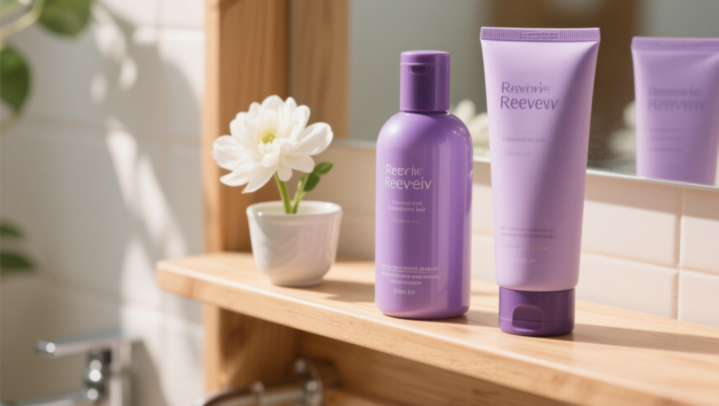2025-04-27
This article clarifies the distinctions between hair masks and conditioners, explaining their unique roles in hair care. It covers functional differences, ingredient profiles, application methods, and ideal usage scenarios, helping readers optimize their routines for stronger, smoother hair. Based on expert insights, it emphasizes the importance of combining both products for balanced hair health.
Details
When it comes to hair care, two products often cause confusion: hair masks and conditioners. While both aim to improve hair health, they serve different purposes and work in distinct ways. Understanding their differences can help you choose the right products for your hair needs.
Understanding Conditioners
Conditioners are typically used after every shampoo. They have a lightweight formula designed to detangle hair, make it more manageable, and add a smooth finish. The main ingredients in conditioners usually include moisturizing agents like glycerin, as well as proteins and fatty alcohols that coat the hair shaft. This coating helps to seal the cuticle, reducing frizz and static. Conditioners provide instant results, making your hair feel softer and easier to comb right after use. However, their effects are relatively short - lived, lasting only until your next wash.
Exploring Hair Masks
Hair masks, on the other hand, are more intensive treatments. They are formulated with richer, more concentrated ingredients such as natural oils (like argan oil, coconut oil), butters (shea butter), and deep - penetrating proteins. These powerful ingredients are able to penetrate deeper into the hair shaft to repair and strengthen from within. Hair masks are not meant to be used daily; instead, they are typically used once or twice a week. Their benefits are more long - term, addressing issues like severe dryness, damage from heat styling or chemical treatments, and lack of elasticity. Using a hair mask can lead to more noticeable improvements in hair texture and overall health over time.
Key Differences Explained
-
Ingredients and Formulation: Conditioners have lighter, more easily rinsable formulas, while hair masks have thicker, more nourishing formulations with higher concentrations of beneficial ingredients.
-
Frequency of Use: Conditioners are for regular, post - shampoo use, while hair masks are for occasional, deep - conditioning treatments.
-
Depth of Treatment: Conditioners mainly work on the surface of the hair to improve manageability, while hair masks target the inner structure of the hair for repair and strengthening.
-
Result Duration: The effects of conditioners are temporary, lasting a day or two, while the benefits of hair masks can be felt for several days or even a week.
Choosing the Right Product
The choice between hair masks and conditioners depends on your hair type and needs. If you have normal to slightly dry hair and just need daily detangling and softness, a conditioner is sufficient. But if your hair is dry, damaged, or lacks luster, incorporating a hair mask into your routine can make a significant difference. For those with oily hair, it's important to choose a lightweight hair mask and use it less frequently to avoid weighing the hair down.
In conclusion, both hair masks and conditioners play important roles in a hair care routine, but they are not interchangeable. By understanding their unique properties, you can create a customized hair care plan that keeps your hair looking and feeling its best.

